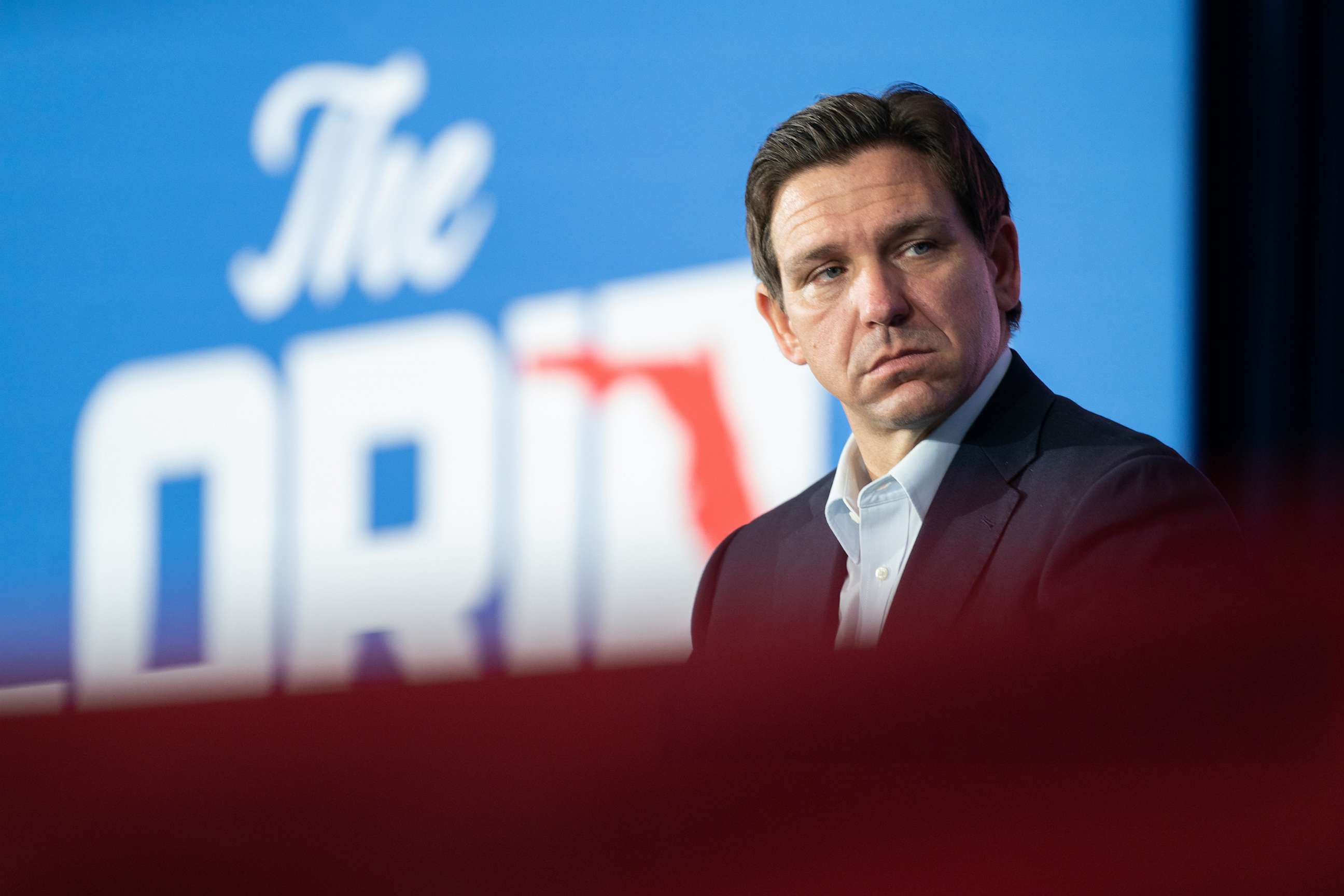Gov. DeSantis signs controversial death penalty legislation
Critics say these bills could lead to wrongful executions.
Florida Gov. Ron DeSantis on Thursday signed a bill that will allow juries to impose the death sentence even if all 12 jurors do not agree.
He is also likely to approve a second bill passed by the lawmakers on Tuesday that would make sexual battery of a child under age 12 a death penalty offense.
The governor, who is rumored to be considering a presidential run, has publicly pushed for both bills -- legislation that opponents say violates the U.S. Constitution and could lead to wrongful executions.
A representative for DeSantis did not immediately respond to a request for comment.

DeSantis, a Republican, has been embroiled in a conflict with Disney over the control of the central Florida district where Disney World is located, drawing ire from Democrats and some of his own party members in recent weeks.
The conflict began last year when Disney executives publicly criticized a controversial DeSantis-backed law banning discussion of sexual orientation and gender identity in certain K-12 classrooms.
The Walt Disney Company is the parent company of ABC News.
The governor's support of these bills has led to additional criticism.
Maria DeLiberato, a capital defense lawyer, told ABC News the newly signed legislation would discount Black and brown jurors' voices and make Florida an "extreme" state with the lowest threshold to sentence offenders to death.
"If you steal a pack of gum in Florida, you are entitled to a unanimous jury determination of your guilt. And so, to have anything less to take someone's life, is just a straight violation of the Constitution,” DeLiberato said.
Under the new requirements, prosecutors only need to convince eight out of 12 jurors that a defendant should be sent to death row. Of the 24 states that are actively carrying out the death penalty, just three states allow non-unanimous death sentence verdicts. In Alabama, a 10-2 juror majority is needed. In Missouri and Indiana, a judge can decide if the jury is divided.
DeSantis has openly pushed for the change since a jury voted 9-3 last October to execute Parkland gunman Nikolas Cruz. The teen instead received the statutorily mandated sentence -- life without the possibility of parole.
"Why do we have one person who can hold all this up?" DeSantis said at a campaign event following the decision. "The legislature needs to change that."
DeLiberato told ABC News the other bill, which would make child rape a crime punishable by death, would also violate the constitution. The Supreme Court took up the issue in 2008 and ruled that it would violate the 8th Amendment, which prohibits "cruel and unusual punishment."
"We all can agree that child rape is probably the most horrific crime we can think of. But the issue here is it has already been decided that it's unconstitutional" to invoke the death penalty in those cases,” DeLiberato, who is also the executive director of Floridians for Alternatives to the Death Penalty, said.
Florida has the highest death row population of any state that is actively carrying out executions, according to the Death Penalty Information Center.
Since 1976, 101 Floridians on death row have been executed. Thirty have been exonerated in that time — more than any other state, according to the Death Penalty Information Center. Many of those inmates were convicted by non-unanimous juries.
Previously, Florida permitted a simple majority to sentence an offender to death. But following a 2016 U.S. Supreme Court ruling and then a state supreme court ruling, the legislature changed course and required that death penalty sentencing be unanimous.
In 2020, the state's high court again ruled on the issue, but this time with the addition of three DeSantis-appointed justices. It again reversed the requirement of unanimity and paved the way for this week's pending legislation.
Donald Dillbeck and Louis Gaskin have already been executed by Florida this year. A third, Darryl Barwick, is scheduled to be put to death on May 3.



